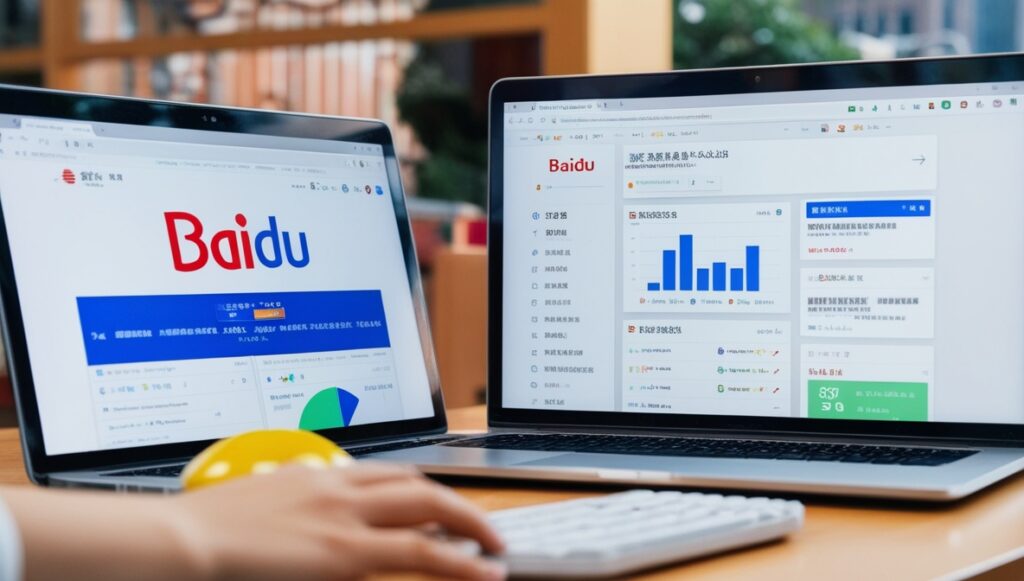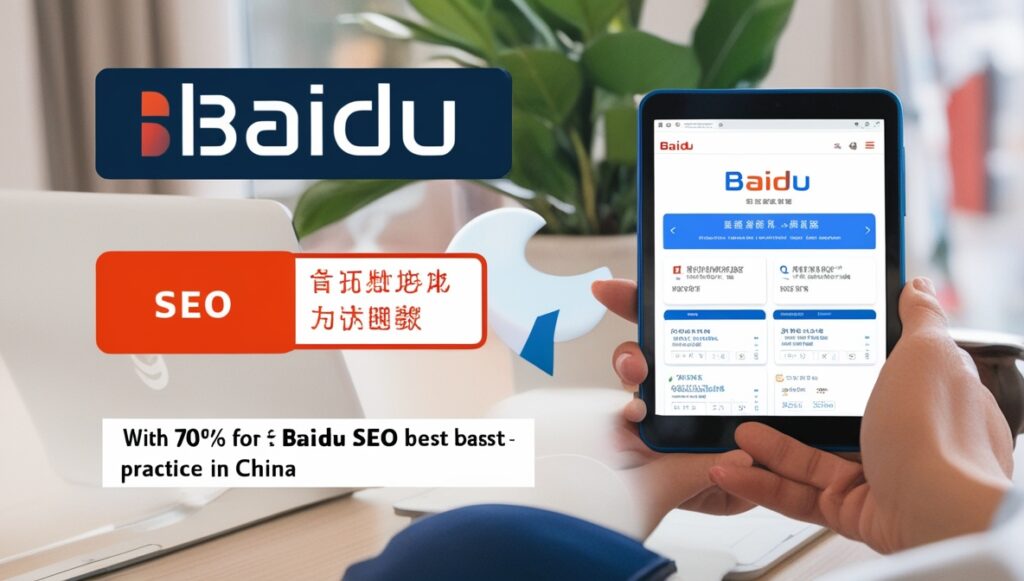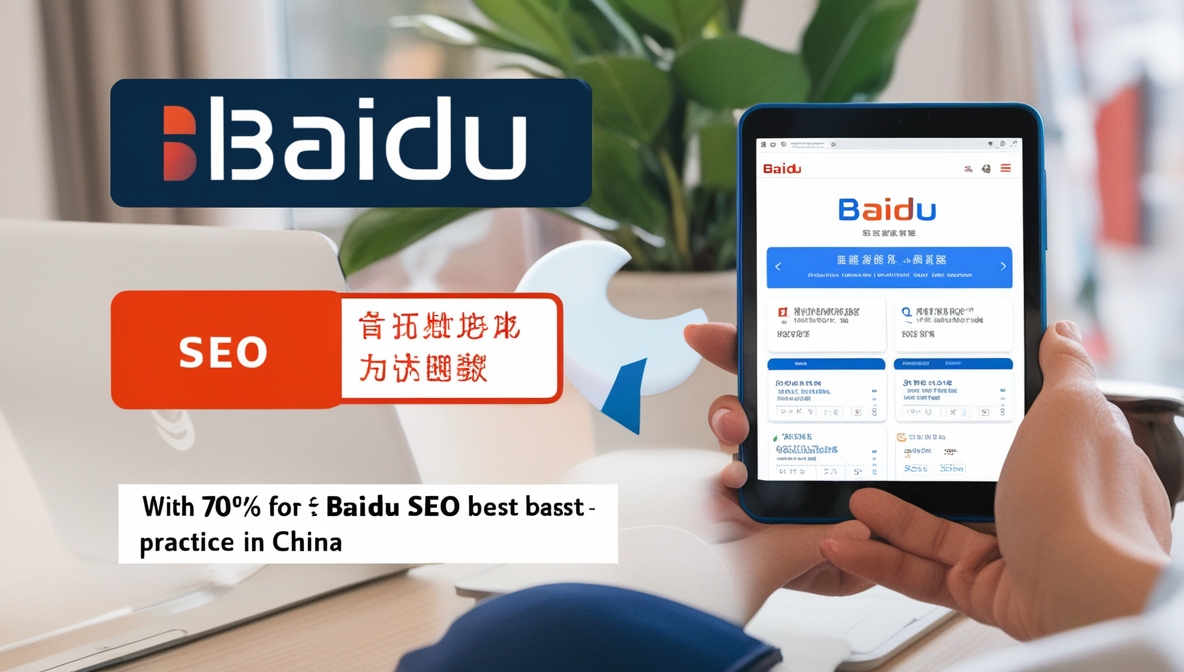
With over 70% of the Chinese search engine market share, Baidu is the leading platform for reaching online audiences in China. For businesses expanding into this lucrative market, mastering Baidu SEO best practices is critical. Unlike Google, Baidu has unique algorithms, features, and user behaviors that require tailored strategies.
This article provides an in-depth guide to Baidu SEO, leveraging insights from industry experts and practical tips to help your business achieve online success in China.
Why Focus on Baidu SEO?

Baidu is more than just China’s dominant search engine—it’s an ecosystem. With tools like Baidu Maps, Baidu Baike (a Wikipedia-like platform), and Baidu Tieba (discussion forums), it integrates deeply into the daily lives of Chinese internet users.
Benefits of Optimizing for Baidu:
- Massive User Base: Baidu processes billions of searches monthly, offering unparalleled access to China’s online consumers.
- Localized Features: Baidu favors content and businesses that are optimized for Chinese users.
- Higher Visibility: Ranking well on Baidu ensures you reach the right audience, whether you’re targeting B2C or B2B markets.
Baidu SEO Best Practices
To succeed on Baidu, businesses must adapt to its unique ecosystem. Here are the best practices for optimizing your website for Baidu’s search engine:
1. Localize Your Website
Localization is not just about translating content into Mandarin—it’s about aligning with Chinese culture, user preferences, and Baidu’s specific requirements.
- Language: Ensure your content is written in simplified Chinese (简体中文).
- Domain Preference: Baidu prioritizes websites with a .cn domain. Hosting your website in China or Hong Kong can further improve loading speed and ranking.
- ICP License: An Internet Content Provider (ICP) license is mandatory for websites hosted in China. Without it, Baidu will deprioritize your site in rankings.
2. Optimize for Baidu’s Crawlers
Baidu’s crawlers differ significantly from Google’s, which impacts how your website is indexed.
- Meta Tags: Baidu pays more attention to meta keywords and descriptions than Google. Use relevant keywords in both.
- Indexing Speed: Baidu’s crawlers favor static HTML over dynamic JavaScript content. Ensure your key information is easily accessible.
- Content Updates: Regularly updating your website signals freshness, which Baidu values highly.
3. Prioritize High-Quality Content
Baidu’s algorithm rewards websites with original, authoritative, and localized content. Ensure your content aligns with the following principles:
- Relevance: Create content that directly addresses user queries, using conversational language.
- Length: Long-form content performs well, as it is seen as more comprehensive.
- Multimedia: Baidu values rich content, including images and videos. Use Baidu’s multimedia platforms, such as Baidu Video, to expand your reach.
4. Emphasize Mobile Optimization
With over 98% of Chinese internet users accessing the web via mobile devices, mobile-first design is essential for Baidu SEO.
- Responsive Design: Ensure your site adapts seamlessly to various screen sizes.
- AMP Pages: Use Baidu’s Mobile Instant Page (MIP) framework to enhance mobile performance.
- Load Time: Baidu prioritizes websites with fast loading speeds on mobile devices.
5. Build Trust Through Backlinks
Backlinks play a vital role in Baidu’s ranking algorithm. However, Baidu evaluates them differently than Google.
- Local Links: Focus on building backlinks from Chinese websites, as Baidu gives them more weight.
- Quality over Quantity: Avoid spammy or irrelevant backlinks. Instead, pursue links from authoritative domains.
- Internal Linking: Baidu favors websites with a logical internal linking structure.
6. Use Baidu’s Ecosystem to Your Advantage
Maximize your presence on Baidu by leveraging its integrated tools and platforms.
- Baidu Baike: Create a detailed Baidu Baike entry for your business to establish credibility.
- Baidu Tieba: Engage with users in relevant discussion forums to drive traffic and brand awareness.
- Baidu PPC: While not part of organic SEO, combining paid ads with organic strategies can boost visibility.
7. Adhere to Content Guidelines
Baidu enforces strict content guidelines to comply with Chinese government regulations.
- Avoid Prohibited Topics: Ensure your content aligns with local regulations and avoids sensitive topics.
- Keyword Filtering: Be mindful of sensitive or banned keywords that could harm your rankings.
- User Experience: Ensure your site provides a clean, ad-free user experience to meet Baidu’s standards.
Technical SEO for Baidu
Baidu emphasizes website structure and technical performance. Implement these strategies for optimal results:
1. Site Speed
- Host your website in China or use a content delivery network (CDN) to ensure fast load times.
- Optimize images and compress files to improve speed.
2. XML Sitemap
Submit an XML sitemap to Baidu Webmaster Tools to improve indexing efficiency.
3. HTTPS
Baidu has prioritized HTTPS for secure websites. Transition to HTTPS to boost trust and rankings.
4. Schema Markup
Use structured data to help Baidu understand your content. Unlike Google, Baidu requires specific schema formats tailored for Chinese users.
Common Mistakes to Avoid in Baidu SEO
- Ignoring Mobile Optimization: Mobile responsiveness is non-negotiable for success on Baidu.
- Using Google Standards: Baidu’s algorithm is distinct; avoid relying solely on Google’s best practices.
- Lack of Local Backlinks: Building backlinks from international domains won’t have the same impact as links from Chinese websites.
How Baidu SEO Differs from Google SEO
While there are similarities, the key differences between Baidu and Google SEO include:
- Algorithm: Baidu’s algorithm is less advanced than Google’s, relying heavily on meta tags and keywords.
- Regulations: Content must align with Chinese legal requirements, which are stricter than in other regions.
- Technical Requirements: Static content and Chinese-hosted domains perform better on Baidu.
Success Story: Dust Digital Marketing Ltd.
At Dust Digital Marketing Ltd., we’ve helped numerous businesses achieve top rankings on Baidu through tailored SEO strategies. One recent client, a Hong Kong-based e-commerce brand, saw a 300% increase in traffic after implementing our recommended Baidu SEO best practices.
Key Tactics We Used:
- Implemented a .cn domain and secured an ICP license.
- Created localized, high-quality content targeting specific Baidu keywords.
- Leveraged Baidu’s PPC and Baidu Baike for additional visibility.
Conclusion

Optimizing for Baidu is a game-changer for businesses looking to penetrate the Chinese market. By implementing these Baidu SEO best practices, your website can achieve higher rankings, increased visibility, and greater brand authority on China’s most popular search engine.
If you’re ready to elevate your Baidu SEO strategy, partner with Dust Digital Marketing Ltd. Visit our website at https://dusthk.com to learn more about our expert services. Let’s unlock your business potential in China’s thriving digital marketplace!

